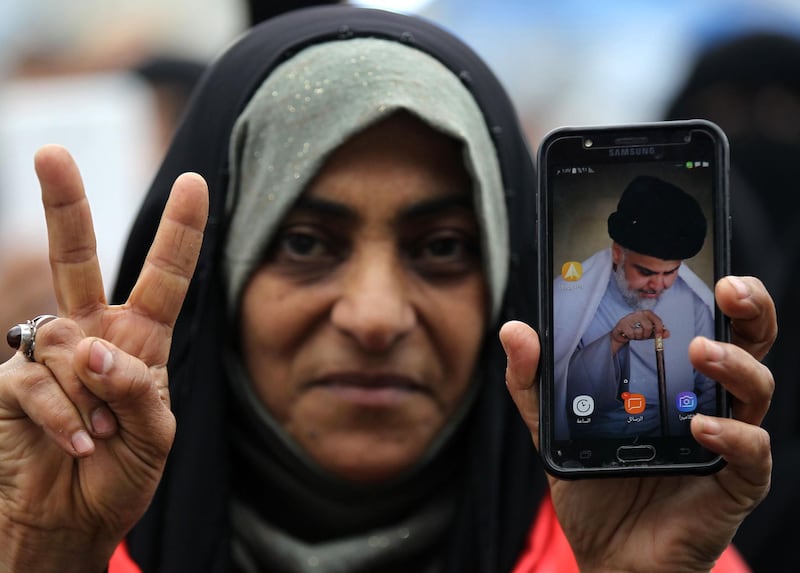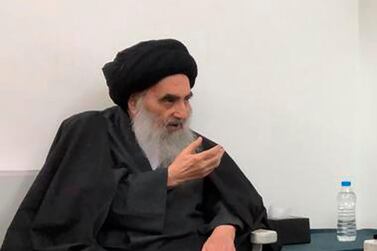Populist cleric Moqtada Al Sadr has backed down from his call for a million-man march against the presence of US troops in Iraq.
It is a significant political reversal after criticism among his Shiite constituency that the march would serve Iran and undermine the three-month uprising he supports.
Mr Al Sadr announced the planned march after a visit to Iran, saying it was aimed at peacefully “condemning the American presence and its violations in Iraq”.
In a statement on Thursday, Mr Al Sadr toned down his language on the anti-US aspect of the march.
He said the demonstration, whose date he did not specify, would be against “corruption and occupation", without specifying the US.
Mr Al Sadr has been the kingmaker in Iraqi politics for the past 15 years.
He took centre stage, describing himself as the leader of resistance, after a US drone strike on January 3 killed Qassem Suleimani, a top Iranian military commander whose Quds Force oversaw pro-Iranian militias across the region.
Suleimani’s Iraqi militia ally, Abu Mahdi Al Muhandis, was also killed in the US operation.
Addressing the protest movement, Mr Al Sadr said in a statement, “go on against corruption we are with you. There can be no homeland under occupation, no sovereignty with corruption and no freedom with militancy".
The reference to militancy seemed to be directed at his Shiite militia peers, some of whom Mr Al Sadr had said were militants intent on undermining Iraq by attacking US forces in revenge for Suleimani.
Mr Al Sadr also rejected charges that the demonstrators were “serving the outside”, an apparent rebuke to Iran and many of its clients in Iraq who described the protest movement as a US and Israeli plot.
Many of the demonstrators are impoverished Shiites living in Baghdad and southern Iraq, the bedrock of support for Mr Al Sadr. Nationalist clerics opposed to Iran’s influence in the Shiite learning centre of Najaf also allied with Mr Al Sadr.
One of them, Sheikh Ali Al Uboudi, called on Mr Al Sadr to cancel the march, calling it “out of context”.
He noted that Mr Sadr called for the march after pro-Iranian militias overran a protest hub in the centre of the southern city of Nasiriyah, a core constituency of Mr Al Sadr.
Iraq’s highest Shiite authority, Ayatollah Ali Al Sistani, also signalled his displeasure with the planned march through a twitter group affiliated with him.
The group, the Holy Abbasid See, said a statement by Mr Al Sistani ten days ago drawing attention to unnamed groups as attempting to sabotage the protest movement was "a warning".
Mr Al Sistani, who is in his late 80s, is due to undergo surgery for a fractured thigh bone on Thursday, underlining his fragility, as well as the potential perils to moderation in his absence.






